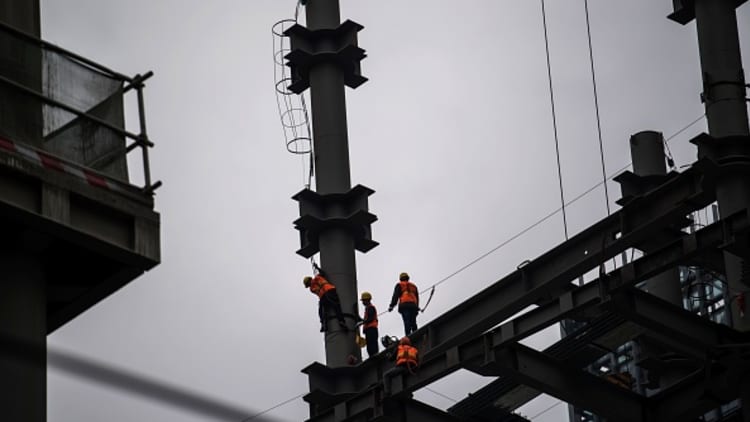
The problem with President Donald Trump's steel and aluminum tariffs is that China gets "off more or less scot-free," said former U.S. Trade Representative Michael Froman.
"There's a real issue about overcapacity in steel and aluminum production around the world that is hurting our industry," he told CNBC on "Power Lunch" on Friday. "That problem can really be traced back to China, where much of the overcapacity is emanating from."
Froman, who served as trade representative under former President Barack Obama from 2013 to 2017, said the potential tariffs — 25 percent on steel and 10 percent on aluminum — is that they don't "really hit China," a major exporter of steel and aluminum.
"It hits Canada … it hits South Korea and Mexico and Germany and Japan," he said. "Some of our closest partners and allies."
Froman, who is now a distinguished fellow at the Council on Foreign Relations, said this environment could spark potential trade wars around the globe.
"It's very hard to work with other countries, to build the kind of coalition you need, to put pressure on China," he said of China's excess capacity, "if at the same time we're imposing tariffs on their exports — if we're pissing off allies and partners."
On Thursday, the president signaled that the U.S. would impose the tariffs on foreign steel and aluminum next week.
The U.S. is the world's largest steel importer. U.S. steel imports have grown 219 percent since the second quarter of 2009.
While the details are unclear as to which countries and products would be affected, and nothing has been signed into law yet, Froman pointed out that the president did say no countries would be left behind.
Several European nations, Canada and Mexico, among others, Froman said, have already said they were going to retaliate.
"When they retaliate, they tend to focus on icon American brands, big exports or politically sensitive sectors," and, he said, a retaliation could affect many sectors across the U.S. economy, from agriculture to airplanes to motorcycles.
Harley-Davidson media manager Michael Pflughoeft said the motorcycle company will review the tariffs before commenting on the potential impact to its customers.
"In general, tariffs impact our ability to offer products at a competitive retail price to our customers in any market," he said in an email. "We support free and fair trade policies that address barriers to international growth and allow us to compete globally."
But Alex Kowalski, CEO and owner of the Midwest-based Performance Complete Metal Solutions, said he doesn't think consumers will see substantial price increases.
"In our view, we think it's a little bit of an overreaction by the market," Kowalski told CNBC during "Closing Bell" on Friday. His company manufactures steel and aluminum products for several Fortune 500 companies. "We have been raising prices, but they have not been massive or significant to any stretch of the imagination."
Meanwhile, the market was sent into a tailspin on Thursday after Trump's announcement. The Dow Jones industrial average fell more than 550 points Thursday afternoon, despite opening nearly 150 points higher. The index recovered slightly but was still down 1.7 percent, or 420.22 points, by the close. The S&P 500 also declined 1.3 percent. Friday morning the Dow fell as much as 376 points. The S&P 500 fell 0.5 percent. Industrials and consumer discretionary were the worst-performing sectors. But the market began to recover midday, regaining more than 100 points.
"We have to remember that other countries have politics, too," Froman said. "They can't be seen as bending to the will of the United States at the same time that the U.S. is imposing taxes on their exports. It makes it more difficult to be more flexible at the negotiating table."
"It certainly doesn't help create the atmosphere of where real give-and-take and compromise will be necessary," he said.


